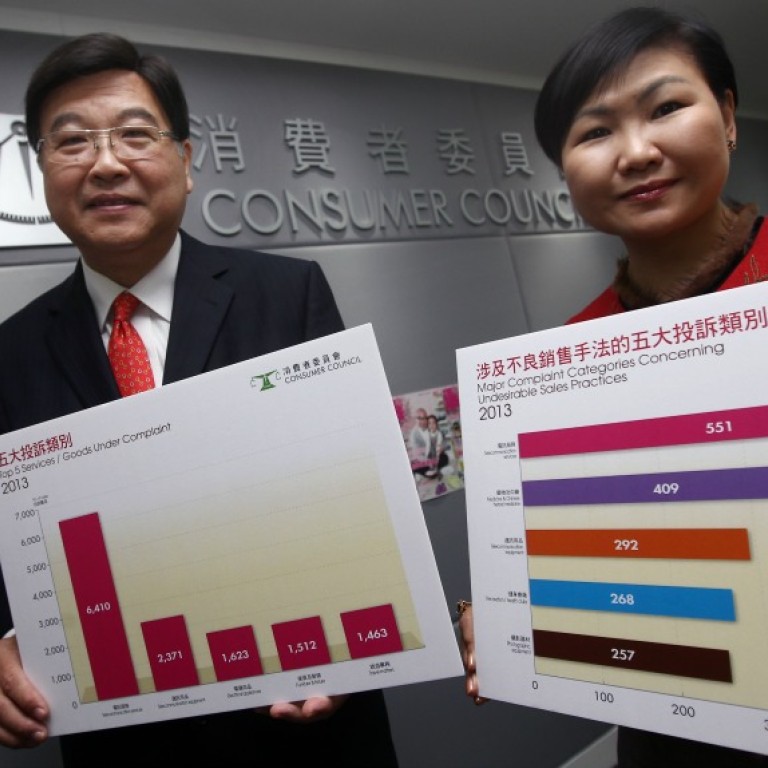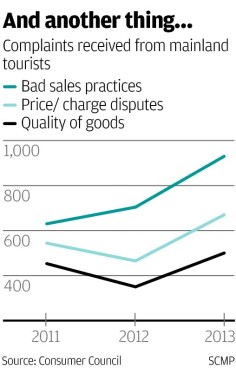
More Consumer Council complaints as scams target mainland Chinese visitors
Shifty retailers are now zeroing in on cross-border visitors, leading to increase in complaints to the Consumer Council
Unscrupulous retailers may no longer be able to mislead locals with their old tricks, but they have found new victims among the burgeoning number of mainland visitors, resulting in a surge in complaints.

Meanwhile, their complaints to the Consumer Council rose 35.8 per cent to 2,306, many claiming misleading sales practices. Some are well-known among locals, such as confusing price indicators for Chinese herbal medicines.
Others are tourist-specific, such as people talked into paying a fortune for supposedly top-brand watches that are actually cheap and unpopular.
"Most of the tourist complaints came from mainland travellers, and most concern their shopping experiences," council chairman Professor Wong Yuk-shan said.
"As more of them come to Hong Kong, their shopping frequency increases and so do their complaints."
The number of complaints concerning ginseng and herbal medicine rose from 100 to 142 in two years. Shop staff are accused of not mentioning the weight unit when asked the price before grinding up the herbs.

Complaints about drugs, Chinese patent medicine and health supplements tripled to 386, with some tourists being sold products with names misleadingly similar to famous brands.
Complaints about watches almost doubled to 317, mostly from tour-group members who had been dragged to unreliable shops, often tucked away on the upper floors of buildings.
These all helped lift the overall number of complaints received to 30,006 last year, up 10 per cent on the year.
The watchdog said new consumer protection laws had made people more aware of aggressive and misleading tactics and that had also contributed to the rise in complaints.
In July last year, the Trade Descriptions Ordinance was amended to make misleading and aggressive sales practices related to both goods and services illegal. Previously, the law had only applied in respect to goods.
Most of the recent complaints about sales practices were related to telecoms services and equipment, Chinese herbal and patent medicines, fitness clubs and beauty centres and camera equipment.
"We have seen cases in which shoppers are talked into paying more for buying supposedly newer models of cameras," Wong said. The customer then discovers it is not a new model, but has been marked with a different model number used outside Hong Kong.
Complaints arising from online shopping continue to climb, with the number from all websites except group-buying ones more than doubling to 2,076 last year.
Gripes related to air tickets and hotel rooms topped that list, followed by computer and telecoms products.
